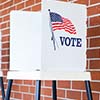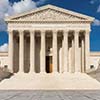California Supreme Court Refuses to Review Court of Appeal Decision Barring Parcel Tax Challenge Filed after Expiration of Period for Reverse Validation Action

April 2016
Number 22
The California Supreme Court recently denied a petition for review of the Court of Appeal's decision in Golden Gate Development Company, Inc. v. County of Alameda, et al. (2015) 242 Cal.App.4th 760. As a result, the holdings in Golden Gate Development remain undisturbed, including that: (1) a reverse validation action is the proper procedure for challenging a parcel tax; and (2) such action must be brought within 60 days of passage of the parcel tax measure.
In February 2014, real estate developer Golden Gate Development Company, Inc. (Golden Gate), filed suit seeking a refund of taxes paid under parcel tax measures of the Albany Unified School District (District) passed in 2009. Golden Gate's complaint, which referenced the recent decision in Borikas v. Alameda Unified School District (2013) 214 Cal.App.4th 135, alleged that the tax rates Albany's measures were improper because different rates were imposed on residential and nonresidential properties, as well as nonresidential properties of different sizes. In Borikas, the Court of Appeal held that a tiered-rate parcel tax exceeded the school district's taxing authority and was invalid because the rate structure was not uniform for all taxpayers and parcels.
The County and District demurred to Golden Gate's complaint, contending that Golden Gate failed to present its claims in a reverse validation action within 60 days of passage of Albany's measures pursuant to Code of Civil Procedure section 860 et seq. Generally, the validation statutes provide an expedited process by which certain public agency actions may be determined legally valid and not subject to subsequent legal challenge. The trial court sustained the demurrer without leave to amend. Golden Gate appealed the trial court's decision.
The Court of Appeal upheld the trial court's ruling, finding that the exclusive procedure for challenging the validity of the parcel tax measures was a reverse validation action. In reaching its decision, the court reasoned that Golden Gate's claim, while styled as a refund of taxes, was based on the alleged illegality of the tax scheme of the parcel tax measures, which can only be challenged under the validation statutes. Since Golden Gate did not timely bring a reverse validation action against the measures, it had missed its opportunity to challenge their legality.
On February 17, the California Supreme Court refused to disturb the ruling, denying Golden Gate's petition for review; therefore, this decision is now settled law.
Lozano Smith prepared the amicus curiae brief of the California School Boards Association's Educational Legal Alliance in support of the District before the Court of Appeal.
If you have questions regarding this decision, or parcel taxes generally, or would like assistance preparing a parcel tax measure, please contact one of our nine offices located statewide. You can also visit our website, follow us on Facebook or Twitter, or download our Client News Brief App.
Number 22
The California Supreme Court recently denied a petition for review of the Court of Appeal's decision in Golden Gate Development Company, Inc. v. County of Alameda, et al. (2015) 242 Cal.App.4th 760. As a result, the holdings in Golden Gate Development remain undisturbed, including that: (1) a reverse validation action is the proper procedure for challenging a parcel tax; and (2) such action must be brought within 60 days of passage of the parcel tax measure.
In February 2014, real estate developer Golden Gate Development Company, Inc. (Golden Gate), filed suit seeking a refund of taxes paid under parcel tax measures of the Albany Unified School District (District) passed in 2009. Golden Gate's complaint, which referenced the recent decision in Borikas v. Alameda Unified School District (2013) 214 Cal.App.4th 135, alleged that the tax rates Albany's measures were improper because different rates were imposed on residential and nonresidential properties, as well as nonresidential properties of different sizes. In Borikas, the Court of Appeal held that a tiered-rate parcel tax exceeded the school district's taxing authority and was invalid because the rate structure was not uniform for all taxpayers and parcels.
The County and District demurred to Golden Gate's complaint, contending that Golden Gate failed to present its claims in a reverse validation action within 60 days of passage of Albany's measures pursuant to Code of Civil Procedure section 860 et seq. Generally, the validation statutes provide an expedited process by which certain public agency actions may be determined legally valid and not subject to subsequent legal challenge. The trial court sustained the demurrer without leave to amend. Golden Gate appealed the trial court's decision.
The Court of Appeal upheld the trial court's ruling, finding that the exclusive procedure for challenging the validity of the parcel tax measures was a reverse validation action. In reaching its decision, the court reasoned that Golden Gate's claim, while styled as a refund of taxes, was based on the alleged illegality of the tax scheme of the parcel tax measures, which can only be challenged under the validation statutes. Since Golden Gate did not timely bring a reverse validation action against the measures, it had missed its opportunity to challenge their legality.
On February 17, the California Supreme Court refused to disturb the ruling, denying Golden Gate's petition for review; therefore, this decision is now settled law.
Lozano Smith prepared the amicus curiae brief of the California School Boards Association's Educational Legal Alliance in support of the District before the Court of Appeal.
If you have questions regarding this decision, or parcel taxes generally, or would like assistance preparing a parcel tax measure, please contact one of our nine offices located statewide. You can also visit our website, follow us on Facebook or Twitter, or download our Client News Brief App.
As the information contained herein is necessarily general, its application to a particular set of facts and circumstances may vary. For this reason, this News Brief does not constitute legal advice. We recommend that you consult with your counsel prior to acting on the information contained herein.





